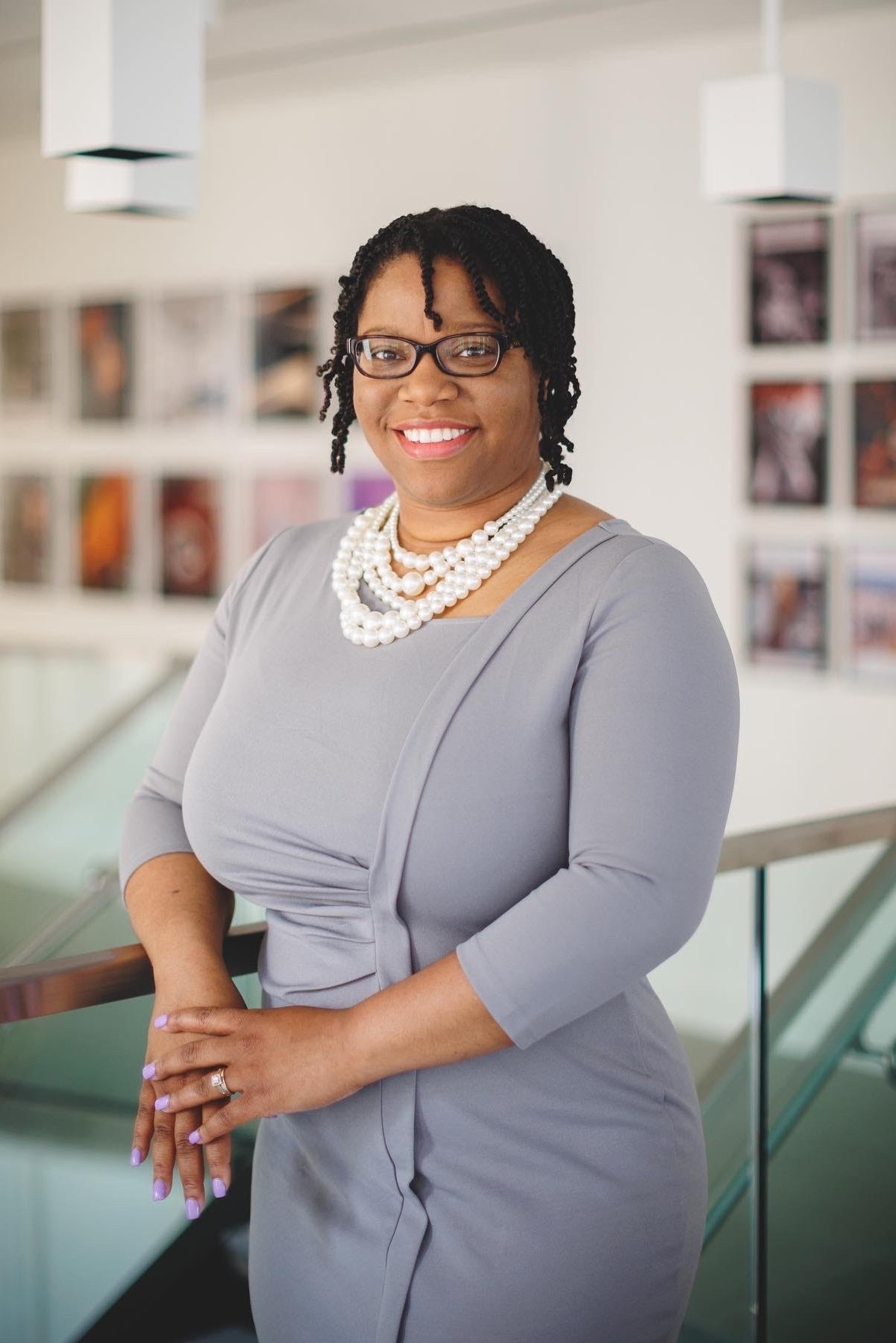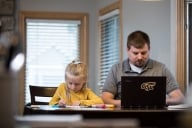You have /5 articles left.
Sign up for a free account or log in.

As vice president of student development and engagement, Whitney McDowell-Robinson will promote a thriving student life on campus.
Brenau University
Brenau University in Georgia selected Whitney McDowell-Robinson to serve as its first vice president of student development and engagement, reimagining the role of vice president of student affairs to create a more inclusive picture of student success work.

McDowell-Robinson comes to Brenau from HBCU Tougaloo College in Mississippi, where she started her career in higher education in a variety of roles from international studies, IT and psychology to and student services.
Inside Higher Ed spoke with McDowell-Robinson about her role, career trajectory and philosophy for student success in her work.
Q: Your role is part of a larger rebranding at Brenau around student success. How does that impact your work?
A: [The rebrand] was centered around what I like to call relationship-building versus transactional relationship. Transactional, like before, is like when you go to a doctor’s office—you walk up to the window, you get what you need and you go.
The purpose of rebranding this [office] and having student development and engagement versus just student services is to ensure students understand the inner workings, behind-the-scenes of, we’re not just the people who are putting on the event, we’re not just the people who are over Greek life or residential life or counseling services, career services.
It’s a lot more to how we’re ensuring that what you’re learning in the classroom, we’re supporting it outside the classroom and we’re really undergirding the work that you’re learning. And making sure we put you together with thought partners and thought leadership and helping you understand how you tie in the hard skills that you’re learning with soft skill development.
So that’s what I’ve taken from it. That’s what I’m pushing with my team, to ensure that we are looking at it from that lens and not just, “Come here, get this, now you leave.” This is a partnership and a relationship that we’re trying to grow and develop with all students.
Also around the rebrand, this is an institution that was initially founded as a women’s college. In the last few decades, it’s become coed and then [transitioned] from undergraduate to graduate [education], while retaining The Women's College at Brenau University as a vital part of our institution. So really ensuring we are supporting every student who’s enrolled at this institution and not just those students who are here, undergrads that we see every day.
Q: Why is that work of making the office’s function and goals more intentional important to you?
A: When students and families are thinking about higher education and paying for college and thinking through what this value will be for me, for my career and generational wealth, or generational curses that we’re breaking for that, it’s important for students to be able to see the work that we’re doing, see various faces and backgrounds and demographics. Because one, that’s the world we live in—it’s realistic, right? It’s almost making sure we’re not having students insulated in a bubble to where they think that what they have here is all that they have.
But then the other part is we’re helping develop compassionate, thoughtful, resilient, independent critical thinkers, who are able to then leverage what they’ve learned here because of the experiences and because of the relationships they build and because of the partnerships—it’s all those pieces that come together. It’s more than just going to class, going into the cafeteria and then going back to your residence hall. It’s coming out, and it’s making those relationships, whether it’s with your faculty members, your suite mate in the residence hall or some [other] community members.
Our work is even more critical today than it’s ever been before, especially working with students who’ve come out of COVID-19. Coming out of a year or two where they have been very isolated and maybe—let’s be honest—maybe just pushed along for the sake of just … trying to find out what that new normal is. We have to make sure we’re understanding that we’re even more critical today than we were before.
Q: What’s your philosophy around student success work?
A: I told the team this during my interview (and my husband’s like, “You don’t know a lot about football, so be careful with that analogy”).
I say my philosophy is similar to being a football coach. I’m here to help you think through the plays; we’re here to think through what the outcome may be as we think strategically about how to get from A to Z. But at the same time, I’m here to sit back and let you run your play; you do your work, you implement your ideas and your programs, and then we debrief at the end and we talk about what worked well, what didn’t work?
My philosophy has always been, I hate to be micromanaged. In turn, I make sure I am very intentional that I don’t do that to the team. We talk about what our goals are; we talk about what that looks like, for supporting the institution’s mission and values. And then I sit back and I allow the team to do their work. And then we do a debrief about it and talk about it.
Q: In the Brenau 2030 strategic plan, student success is the No. 1 goal. How are you championing this work?
A: Because that is goal No. 1, it was very important to ensure that we are thinking outside the box about the work that we’re doing. It’s no longer, you know, career services just checking your résumé or res life is just giving you a key, right?
It’s being intentional about your assessment of your processes; it’s evaluating your future and current programs. It’s leveraging, how do we help with the university’s brand and image? It’s making sure that we are more than just the group that’s here thinking through what party are we going to do or what we are going to do in Greek life.
It’s being intentional, having goals and making sure that they mirror and are complimentary to it. The president [Anne A. Skleder] has made it very clear that this is a huge priority, which it should be. That’s the whole purpose of higher education institutions. We are here to serve students; they are our customer, and we need to ensure that we are customer-centered. We understand that the customer is not always right, but as much as possible, we are a listening ear, and we are that village away from home.
Q: What are your goals for your first year?
A: First year, of course, is learning everyone. The job itself is not the challenge; you have to learn the culture and the people—how do you get the right people on the bus? And how do you gain buy-in? So that’s what I'm working through right now—learning culture and learning how to get the buy-in needed to move some things forward.
Goals for me are looking at programs and traditions that are held dear here and ensuring that they are still relevant in 2023. So we’re working through policy changes and honor code revisions and handbooks, and we’re doing those basic things that you would expect a person to do.
But the main one right now is how can we be of support to students around making sure they, one, are living in a safe and secure location, two, that they are having diverse conversations and thoughts around the work that we’re doing here at the institution, and then how do we build community.
Because again, back to that COVID piece, when campuses shut down and students came back, students aren’t going to activities like they used to; students aren’t engaged in Greek life, or clubs or organizations, students aren’t coming to career services to get the assistance they need, until like two weeks before graduation.
We’re really trying to do a major rebrand of who we are and touch points on every student, making sure that that at some point. You know, we want to get to that point where they’re sick of seeing us. So that’s what we're working through right now.








